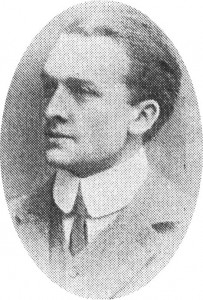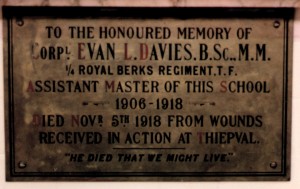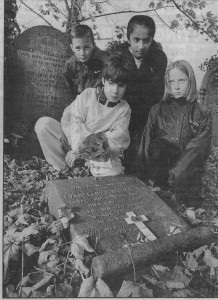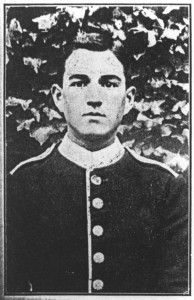Evan Lloyd Davies MM
Corporal 200422
1st/4th Royal Berkshire Regiment
Division 32 Grave number 8995
 |
 |
Evan Lloyd Davies was the son of William and Rhoda Davies and husband of Grace Ethel Davies. He died on the 5th November 1918 of wounds received on 27th August 1916 as the 48th Division tried to take the Thiepval ridge. During the battle he received the head wound which ended his war and ultimately his life. Evan Lloyd Davies had acquitted himself well during the battle and was commended for the Military Medal for ‘distinguished bravery in the field’. He was buried in Reading Cemetery on the morning of the Armistice, 11th November 1918 aged 35. He left his wife and two children.
Evan Lloyd Davies was a teacher at the Wokingham Road Senior School, now Alfred Sutton Primary School. The plaque above commemorates his name and is in the junior hall of the school.
He had served overseas with his Territorial unit from the beginning of the war. His full story is told in ‘The School, the Master, the Boys and the V.C.’ which is the story behind the Alfred Sutton School Memorial.
 |
| In 1998 children from the school laid a poppy wreath on the grave of Evan Lloyd Davies in remembrance of his service to the school and his role in the Great War. |
Evan Lloyd Davies was one of six Reading teachers to lose their lives in the war.

![dbImage[1]](http://cemeteryjunctionwargraves.org.uk/wp-content/uploads/2013/11/dbImage1-300x225.jpg)